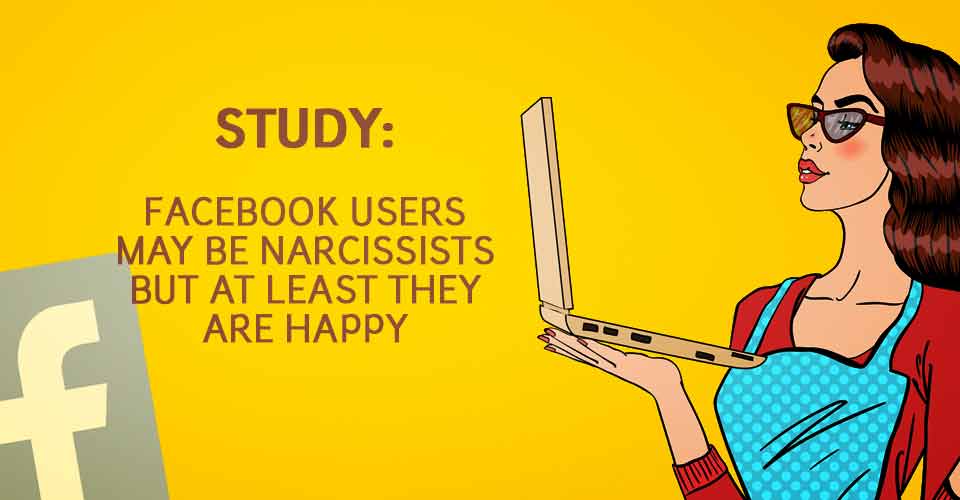We all know that people who over-indulge in social media can skew toward the narcissistic. Study after study has proven this. Also, we can see it with our eyes. However, recent research shows that our image of the self-absorbed selfie taker may not capture the whole truth.
A study published in PLOS One has found that the personality and mental health differences between Facebook users and non-users may be more complex than we previously thought. In spite of their self-absorption and need for approval, Facebook users may actually be the happier group.
In their study of nearly 1,000 participants, researchers found, predictably, that subjects who used Facebook had higher levels of extraversion and narcissism than non-users. What surprised the researchers were their scores in other areas.
Facebook users scored higher than non-users in measures of of subjective happiness, social support, and self-esteem. They were also judged to have a higher level of overall life satisfaction.
Another surprising discovery can be seen in what wasn’t different between the two groups. The “big five” traits – conscientiousness, agreeableness, neuroticism, extraversion, and open-mindedness – are considered by many psychologists to form the basis of personality. With the exception of extraversion, the users and non-users showed no significant difference when it came to these traits. This implies that social media use (or non-use) does not relate to our inherent personality. It has more to do with our chosen lifestyle.
In an interview with PsyPost, the study’s corresponding author, Julia Brailovskaia of Ruhr-Universität Bochum, discussed the implications of this study. Although she acknowledged that more research still needs to be done regarding social media and mental health, she saw these findings as a potential bright spot for those who struggle with building social support. “Considering the large potential of Facebook in providing social support and satisfying the need to belong, the use of this platform could be especially meaningful to people without offline social support. Unlike to face-to-face interaction, in online interactions users can take time to think through their course of action and practice managing stressful situations to develop appropriate, resilient behavior.”
However, she is quick to highlight the limitations of the study and its findings. As Brailovskaia emphasizes, there is still much work to be done before we can declare social media use “healthy.” “In our study, we did not investigate online behavior. We only compared users and non-users of Facebook. In future studies, it would be advisable to focus on the association between activities on Facebook, e.g., social interaction, and life satisfaction or depression and anxiety symptoms.” As she goes on to clarify, “Our results cannot answer the following question:
Does Facebook use help to improve mental health making its users more resistant against e.g., depression?
If this was the case, it would be beneficial to integrate the use of Facebook into prevention programs for mental health. However, such assumptions would also suggest that traits such as narcissism increase with Facebook use. Some authors of earlier studies have already expressed this concern emphasizing that especially younger users of platforms like Facebook show increased narcissism value.”
So – what can we take away from this? As with most activities, I believe the answer to be in moderation. Indulge in social media if it makes you happy to do so. Don’t, however, get so caught up in it that it becomes an addiction. Don’t lose yourself in an online simulation of your life and miss out on the real thing.
The study, “Comparing Facebook Users and Facebook Non-Users: Relationship between Personality Traits and Mental Health Variables – An Exploratory Study“, was co-authored by Julia Brailovskaia and Jürgen Margraf.


